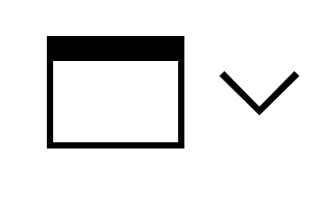Aeronautics and space technology
Multidisciplinary education in aeronautical engineering, which forms the basis of the new study field "Aeronautical and space engineering", is a requirement of the European work market, because current aircraft systems are hybrid and integrated systems. In the new study program "Aeronautical and space technology", the student has an expanded knowledge not only of the principles of operation of systems on aircraft, but also of the principles of aircraft design and space engineering technology. The stated study program is intended to enable the training of new specialists in demand for the labor market and thereby contribute to the declared effort of the Slovak Republic to keep pace with technological development in Europe in the future. The field of education in the aforementioned study program also supports the Slovak Republic's efforts to fully integrate into the European Space Agency (ESA).
A graduate of the Bachelor's study program in Aerospace Engineering in the field of Aerospace Engineering has knowledge of modern aeronautics and space technical means oh, he controls the principles and functions of their operation as well as the conditions of their operation. He has knowledge of theoretical disciplines such as aerodynamics, applied mathematics, etc. and selected electronic, electrotechnical, instrumentation and engineering disciplines for understanding the operation of technical means. He is able to assess the functionality of technical, technological and computer-supported devices in the given conditions of aviation and space facilities, production and technical operations, laboratories, and at the same time he is able to communicate competently with flight personnel, as well as with technical personnel in the field of production, maintenance, constructions, technologies and etc. It is mainly used in the operation of aviation and space technology, in the framework of service and design of diagnostic systems, in the production of technical aids for the field of aviation operations, maintenance and implementation of prescribed works. Based on the acquired knowledge of information systems, he is qualified to use them in a qualified manner.
A graduate during his studies:
- acquires knowledge and understands basic concepts, laws and connections from subjects with a theoretical basis, such as mathematics, physics, computer science, etc.,
- according to the focus of the study program, he acquired knowledge of laws and connections from selected subjects of the theoretical basis, such as the basics of electrical engineering, mechanical engineering and aerodynamics, etc.,
- acquires knowledge of the laws and connections of the theoretical basis of aviation and space disciplines, with an emphasis on the construction and functions of flying objects, physical, electrical, electronic and mechanical processes,
- will acquire knowledge about aeronautical and space technology and its applications, about the physical and aerodynamic nature of quantity sensors and the ability to independently solve the problems of prescribed works on aviation and space technology
The graduate will acquire the following practical skills during his/her studies:
- analyze and understand the principles of operations and technologies of aviation and space technology,
- competently communicate with the aviation environment and work in interdisciplinary teams with flight personnel,
- design and implement hardware and software solutions for the analysis and processing of flight data under the guidance of specialists,
- have sufficient technical skills in working with selected aviation and space technology, or design skills,
- to be a professional employee of aviation services and technical security of aviation and space assets,
A graduate can:
- work as a member of an interdisciplinary team in an aerospace engineering environment,
- solve technical tasks in the application to on-board aircraft and space systems and their propulsion systems,
- behave professionally in all areas of their activity with an emphasis on ethical standards in the area of their work contacts within production and maintenance facilities,
- work as an independent technician (mechanic, avionics) on aviation technology.


